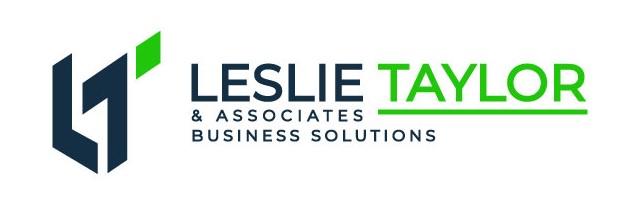What is an authentic leader?
Authenticity is an area where many business owners or people in positions of power tend to struggle. Being an authentic leader means you maintain your values and sense of self while running your company and motivating your employees.
When asked for examples of authentic leaders, does anyone come to mind right away?
While it may not be hard to define authenticity, which is generally just doing the right thing and being honest, it is not easy to portray it, especially in a workplace. Many business owners and leaders feel that some things should not be shared with employees. While this is true in some cases, to have a business that thrives, your best bet is to keep your employees all on the same page as far as goals, values, and expectations.
It can be difficult to discern what is useful and what is oversharing. I love this advice from Brene Brown on the subject. She suggests the following:
“Are you sharing your emotions and your experiences to move your work, connection, or relationship forward? Or are you working your s–t out with somebody?”
What are some traits authentic leaders have?
Authentic leaders are open and honest. They emphasize building relationships inside and outside in order to help their business grow. Additionally, this helps keep employees happy.
Being an authentic leader requires self-awareness and heart-centered leadership. You must understand that you set the tone for the whole company and shouldn’t just leave them in the dark on everything. This is hard for many business owners who want to remain professional and keep the respect of their employees. However, when people genuinely believe they are working for a humble person toward a common goal, they will be more likely to take pride in their work.
Are you looking to become an authentic leader? Are you looking to help your team and your business thrive? Authentic leaders emphasize the benefit of the people they have alongside them, making them the priority.
Here are some examples of authentic leaders– old and new– that can teach us a thing or two!
Notice what they do, say, and what makes them stand out. How are they authentic? How can you implement some of their practices into your own business?
Ursula Banks
In 2009, Ursula Banks became the first African American female CEO of a Fortune 500 company. Upon taking on this role at Xerox, she implemented her own beliefs into the company to help it thrive.
Banks’ has one word of advice for all business leaders – check your ego at the door and you’re likely to gain the respect of your employees and the other leaders around you.
By being authentic, always speaking her mind, and taking suggestions from her employees, Banks successfully ran Xerox for 6 years before the company split into two – and she became chairwoman for the new Xerox.
Banks is now a director of the boards of Exxon Mobil, Nestle, and Uber.
Kat Cole
Kat is COO and President of Focus Brands. Kat never completed her bachelor’s degree and began her career as a Hooters waitress. She would go on to complete an Executive MBA (still without a bachelor’s degree) and moved from launching restaurants and building teams internationally as an hourly employee into the C suite.
She now manages a global team with responsibility for several brands that include Auntie Anne’s Pretzels, Cinnabon (which she was instrumental in turning around), and Moe’s Southwestern Grill. Kat sits on several executive boards.
Kat has been known to roll up her sleeves and work alongside employees as well as seek their opinions when working to improve organizations she has led.
On the matter of authentic leadership, Kat says:
“I think authentic leadership is this ability to minimize emotional labor, which is the effort you have to make to close the gap between who you really are and who you’re trying to be. And if I’m not spending energy on trying to be a different version of myself than I really am, then more of my energy can go into my people, my business strategy, and how we’re performing. And it is a sense of being able to bring my true self, my true, true self to the business and inspiring others to be able to do the same. So for me, that means I show my tattoos and people know about my personal life and that I’m a burner and got married at Burning Man and spend a lot of time advocating for very progressive causes around the country and around the world. And so there is a good, a capitalist reason to want authentic leadership running through the lifeblood of the company because it allows people to give their full selves, which means you are more likely to get a high return on your investment in those people… And when I’m actually myself, the results are typically better…”
*Gene Hammett Podcast Interview, 2018
Dan Schulman
Dan Shulman took over as CEO of PayPal in July 2015 and instantly got to work on his ideas. He wholeheartedly believes that the biggest asset to a company is its employees and keeping them happy is the way to flourishing success.
That said, he implemented a wage audit for hourly workers and call-center employees and found that over half of them were struggling to make ends meet every month. Upon finding this out, Schulman decided to raise wages amongst these locations, lower the cost of healthcare, and provide opportunities for these individuals to receive financial education as well as benefit from PayPal’s performance.
Schulman also believes that instead of taking a political stance, he would rather directly align with his company beliefs. This shows in his commitment of $530 million to the Black Lives Matter movement in the fight for racial equality. Schulman does not believe these are political activities, but are values. He poses the question: If you are going to hold these values and not act on them, then why have them? These are all traits of an authentic leader.
While large-scale companies are better equipped to offer financial rewards to their employees, this doesn’t mean you have to go bankrupt to show employees you are an example of an authentic leader, too.
Need guidance? I’m here to help. As a business solutions expert, I have helped dozens of businesses untangle complex issues and clarify a path to greater profitability. Let’s schedule an Introductory Call and start a conversation.
If you enjoyed this content and want more of the same, check out my free guide Do This, Not That: 5 Things Keeping Your Business From Reaching Its Fullest Potential where I discuss common barriers to profitability that I observe among most small businesses.

